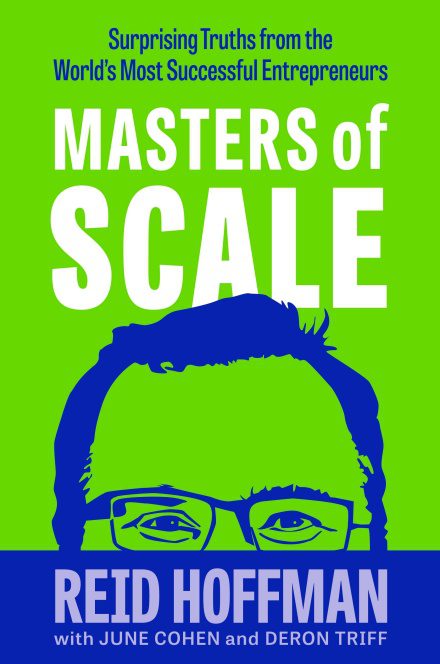Life will happen to us all at some point; whatever will go wrong will eventually go wrong. When things go wrong like they often do, seeing the big picture and the end in mind can be extremely tough. Rejection is a part of life, especially when stretching, aiming beyond your comfort zone and trying to get things done. It is not how often you fall but the ability to get back up when you fall that counts. Most of our rejections are opportunities to recalibrate, restrategize, and dig deep to solve the situation. Fear of failure and rejection kills a lot of dreams and is one of the primary reasons that most of us don’t get started in the first place. Until you change your relationship with rejection and get comfortable with failure, success will be hard to achieve.
“The graveyard is the richest place on earth, because it is here that you will find all the hopes and dreams that were never fulfilled, the books that were never written, the songs that were never sung, the inventions that were never shared, the cures that were never discovered, all because someone was too afraid to take that first step, keep with the problem, or determined to carry out their dream.” – Les Brown
Rejection comes in different forms, shapes and sizes. There is the rejection of a job application, job loss, divorce, miscarriage, your ideas might be said to be not good enough, or your creative output is said to be mediocre. You have to keep believing in yourself and keep showing up day in and day out. Consistency is the name of the game: consistently doing the hard work, believing and betting on yourself, especially during tough times. The entrepreneurial and creative life is a lonely path as you would get rejected, failure is a part of the game and bouncing back is the path to succeeding. You are not a failure until you stop trying. Good Better Best Never Let It Rest Until Good Is Better And Better Is Best. You might get rejected, but don’t get dejected; you are closer than you think.

There will always be people in your life who doubt you and doubt your dream. They will tell you it’s impossible. That you can’t do it or that it can’t be done. The bigger your dream, the more often this will happen, and the more of these people you will meet.
Throughout history, some of our greatest performers and creative minds have had to deal with people just like this 1, people who didn’t get it. The author of Lord of the Flies was rejected by publishers 21 times. J. K. Rowling’s original Harry Potter book was rejected 12 times. The great comic book artist Todd McFarlane was rejected 350 times by different comic-book publishers. Andy Warhol gave the Museum of Modern Art one of his drawings for free, and they gave it back! The producers of The Godfather fired Francis Ford Coppola multiple times because they didn’t believe in his version of the story. U2 and Madonna were both rejected by multiple record labels before they got their deals.
It’s the same story in the business world. The founders of Airbnb were rejected by all seven investors they pitched when they first tried to raise money. Steve Jobs got fired from his own company. Walt Disney’s first animation company went bankrupt. Netflix tried to sell to Blockbuster for $50 million, and the Blockbuster folks laughed them out of the room. Jack Ma, the founder of Alibaba, got rejected from Harvard ten times, and at one point couldn’t even get a job at Kentucky Fried Chicken.
The inventor of virtually every major technological advance of the twentieth century was mocked at some point for being foolish or impractical or just plain stupid by somebody who “knew better.” Arthur Jones, the inventor of the Nautilus fitness machine, got a rejection letter from one naysayer that said, “You want to have consistent and uniform muscle development across all of your muscles? It can’t be done. It’s just a fact of life.”
The one thing all these brilliant people have in common is that in the face of doubt and skepticism, they kept going.

If you want to beat rejection, remember these thirteen tips:
1) When you’re rejected, don’t take it personally. It doesn’t say you’re bad. It says somebody thinks you’re not good enough.
2) Don’t waste time on bitterness. It will hurt you more than anyone else and hold you back from moving on with your life.
3) Accept rejection as a fact of life, especially in highly competitive endeavors.
4) Don’t let go of your dreams. Although Lou Holtz was flattened by disappointment in Arkansas, he made a success of his Minnesota experience, then went on to his dream job at Notre Dame.
5) Figure out why you were fired. Many—perhaps most—people who lose their jobs are mistaken about the real reason for which they lost their jobs. Some will say that they’re failures, others that their boss had it in for them, and others yet that they were sure their career ended because of a stupid faux pas they made at the company picnic. Often firing is a straightforward cost-cutting measure. When you’re fired, it’s easy to weave fantasies and imagine villains. If you are going to spend even an hour feeling miserable, make sure that you are miserable for the right reason.
6) Don’t burn bridges. Lou Holtz’s ability to maintain a civil relationship with Frank Broyles enabled him to get a positive job recommendation when he needed it. And two more offers from Arkansas later on!”
7) Don’t wallow in failure, even when you’re clearly responsible for it. The surest way to beat a setback is to get back on your horse. As Harry Truman put it: “As soon as I realize I’ve made one damned fool mistake, I rush out and make another one.”
8) Visualize acceptance. Psychiatrist Victor Frankl was able to survive Nazi concentration camps by visualizing that he would one day give a speech describing how he survived a Nazi concentration camp. Focus on a time when you’ll be working again in a job you love and where you feel great. Trust me, you can, and will, make this come true.”
9) Do doable things. One of the things that they teach soldiers who might become prisoners of war is to focus on small, doable things. Your helicopter may have been shot down, you have a broken arm, you’re dining on caterpillars, and a bunch of thugs are regularly pounding the stuffing out of you at interrogations. So what do you do? Focus on washing out one of your socks! That’s what one survivor in an international peacekeeping venture did. The next day, it was the other sock. The third day, it was beginning to map out an escape plan. In no time at all, it was planning where he was going to have his welcome-home party when his transport plane landed back in the States. And that’s exactly what happened.”
10) Do some work for charity. It’s a no-brainer that charitable organizations can’t demand a lot of your time when it’s volunteered free of charge. What’s astonishing is the number of great contacts that can be built through charitable work, and how often this network can lead to a well-paid position, as well as much-needed help for a good cause.
11) Look for the doors opened up by losing out. Is the way now clear to work for the boss you admired so much who bolted to another job? Does being fired by a large corporation open the door for being your own boss? Is your company getting out of those mini-widgets because the outfit across town has become so dominant in them?
12) Seek out a winners’ circle of people on the outs. It’s good to have a positive group of colleagues who are going through the same thing you are. But be careful. So-called self-help groups often turn out to be demoralizing self-hurt gangs. It’s very easy to hang out and share suffering with people who are committed to lose. Pick people who are practical and action-oriented. People actively engaged to make things happen for themselves.
13) Find things that motivate you. Some folks feel so guilty about rejection, they deny themselves the very things that will keep them motivated. It could be buying a book or a ticket to a tennis match, and it needn’t be extravagant. Working out, keeping yourself fit and healthy, participating in activities that make you feel good about yourself—all are sure-fire ways to fire yourself up after being fired.

So if you’re pitching a contrarian idea—an idea that questions the status quo, that imagines a different and better way of doing things—brace yourself to withstand and learn from a string of rejections 3. And when you hear that chorus of “Nos,” start looking for other signs that you’re on to something.
“Don’t always believe the naysayers. But listen to them closely, for they may inadvertently speed you along your path.”
Remember that many people will tell you you’re crazy, and make you doubt what you know in your bones to be possible. But you can’t let rejection rule you. Instead, let it fuel you. In the case of “the telling no,” the naysayers are teaching you more about their own assumptions than about the truth of how the world actually works. To your keen ears, their “Nos” should sound like, “Yes, conventional wisdom is overlooking this opportunity.
Meditation
- Daily Calm with Tamara Levitt – Sweet Commotion
- Our meditation practice grows our capacity for discomfort and our ability to find peace within the chaos. It teaches us how to be with life just as it is, which is often noisy and distracting. Practice in a non-reactive way surrounded by commotion.
In the midst of movement and chaos, keep stillness inside of you. – Deepak Chopra
- Daily Jay with Jay Shetty – Love = Time
- Our actions reflect our values and priorities far more than our words do. It is not what you say, thinks or wish but what you do. Acta Non Verba: Deed, not Words.
Podcast
- Nicole Avant On The Hardest Day of Her Life: “It was traumatic…” – Jay Shetty Podcast
- Elliot Page Gets Candid About His Transition Journey ”I was struggling to live life”
All the Best in your quest to get Better. Don’t Settle: Live with Passion.



Comments are closed.